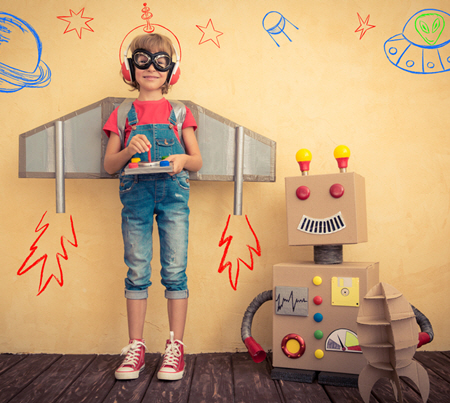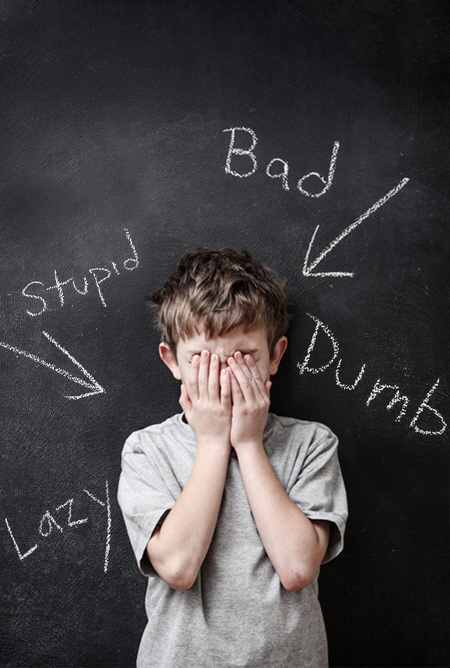“ADHD is like having a race car brain with bicycle brakes.”
– Dr. Ned Halowell, Author and ADHD specialist
 Race Car Brain with Bicycle Brakes
Race Car Brain with Bicycle Brakes
Bright and shiny, fast and furious – the ADHD brain operates like this. Excitement and fun attract that ADHD brain.
Attention Deficit Hyperactivity Disorder (ADHD) is a complex neurodevelopmental disorder. Its characteristics involve a persistent pattern of inattention and/or hyperactivity-impulsivity. ADHD symptoms start in childhood and can persist throughout adulthood.
Children and adults with ADHD find it difficult to pay attention, manage motivation, organize and prioritize tasks, and recall information. They may seem zoned out, completely checked out of the present. Or they may seem to be driven by a motor, causing them to talk or move constantly.
Those with ADHD also can have trouble judging time, tolerating frustration, waiting their turn, regulating emotions, or being sensitive to rejection. Additional concerns like anxiety, depression, oppositional defiance disorder, or sleep disorders are quite common for those living with ADHD.
These complexities and co-existing conditions make life harder at home, school, or work.
It is hard living with ADHD.
Having ADHD makes life more challenging. It is neurologically harder to remember things, prioritize tasks, motivate yourself, and tolerate difficult emotions. Being impulsive makes someone with ADHD say things they shouldn’t and do things not clearly thought through. People are constantly frustrated with you and you with yourself.
The phone calls from the school make your stomach jump. What’s wrong now? It feels like you, as the parent, are being called to the principal’s office. Your kid wants to do well but seems to be their own worst enemy. You don’t know which way to turn.
Emotions are BIG. Caught up in excitement leads to costly decisions. Self-shaming and anger help create motivation and push the task to completion. Anxiety shows up to try and not forget that important thing. Minor events set you off because your fuse feels shorter than everyones.
You constantly wonder – “Why are things so hard for me? For my child? I feel like a failure and a big idiot! If I would get my sh*t together and try harder!”
 Here’s what ADHD is not.
Here’s what ADHD is not.
ADHD is not a lack of willpower. Although everyone experiences moments of forgetfulness or being distracted, those living with ADHD experience these moments daily, relentlessly, and debilitatingly. Simply trying harder doesn’t work. It’s like having a vision impairment and trying to see better isn’t helpful.
While ADHD is a brain-based condition, it does not correlate with lower or higher intelligence. Nor is it a learning disability. People with ADHD often feel dumb because simple things feel so difficult, or they can’t seem to avoid the same struggle repeatedly. Intelligence does not determine an ADHD diagnosis.
It is not a result of bad parenting. Parents are often distressed when they receive calls from the school about their child not listening, not following directions, or disrupting the class. They may blame themselves for their child’s ADHD, especially if they too live with ADHD. They may find themselves constantly lecturing or punishing their child without much success. Parents may feel divided over how to address their child’s ADHD symptoms, causing a very stressful home environment.
ADHD does not only occur in childhood. Adults live with ADHD, too. Like many disorders, ADHD symptom severity varies from person to person. Those adults who appear to no longer have ADHD may have learned how to cope and limit its impact on their lives.
Shedding the Shame
People living with ADHD feel misunderstood and feel tremendous shame. Self-loathing and anxiety are on repeat.
Receiving a diagnosis of ADHD doesn’t mean you fully understand the condition or how to cope with it. Often, the only treatment people are aware of is taking stimulant medication. Medications can be helpful, but not everyone can tolerate medications nor want to take drugs. Therefore, therapy is essential for individuals and families living with ADHD.
Therapy is most helpful when it first establishes a full understanding of ADHD and then takes a multi-system approach.
For children and adolescents, family therapy can help teach ADHD-friendly parenting skills and develop systems to reduce ADHD symptoms in the home and school. Individual Therapy for children, teens, and adults can help improve one’s emotional coping skills, self-esteem, and social skills.
It’s time to fix the brakes!
I can help with ADHD. I will help you understand and love yourself.
I want you to see that ADHD brains are creative, passionate, determined, critical thinkers, curious, fun, and funny.
Together, we will discover ways to trick your brain, get things done, cope with big emotions, reduce anxiety, and improve relationships.
My passion is to let the world know, let YOU know, that people living with ADHD are amazing!

